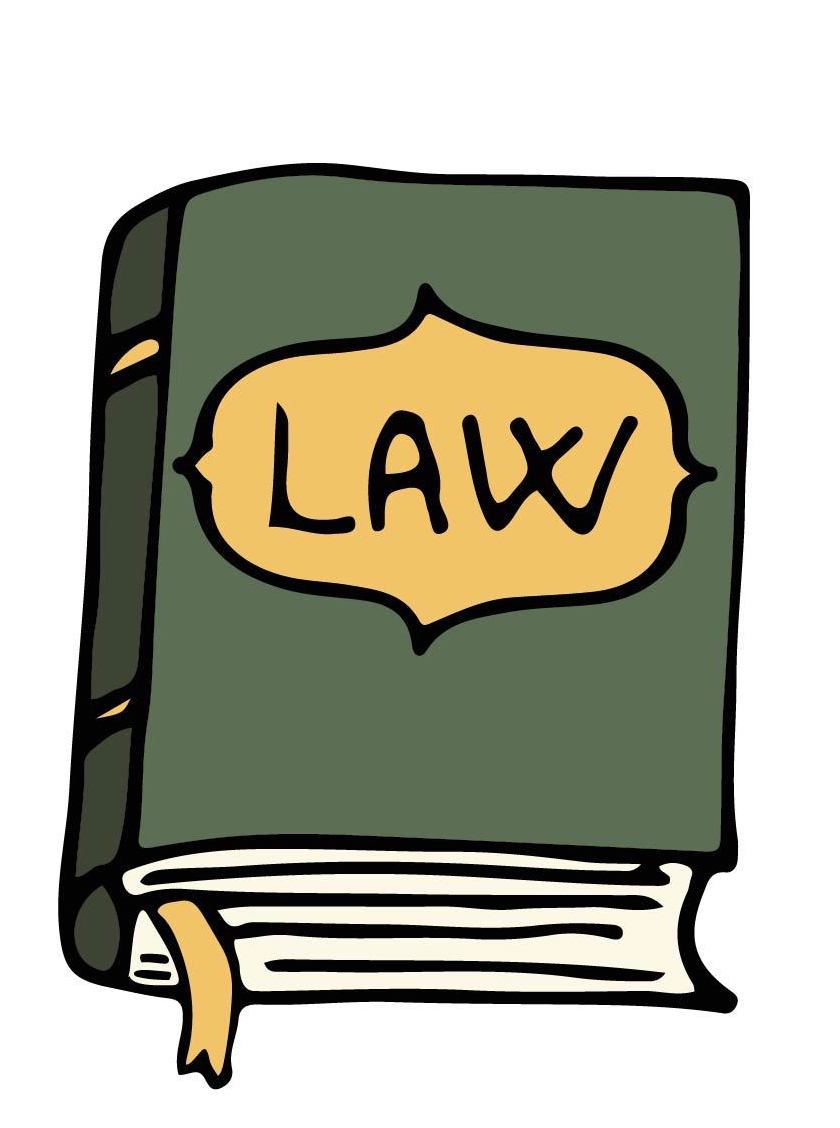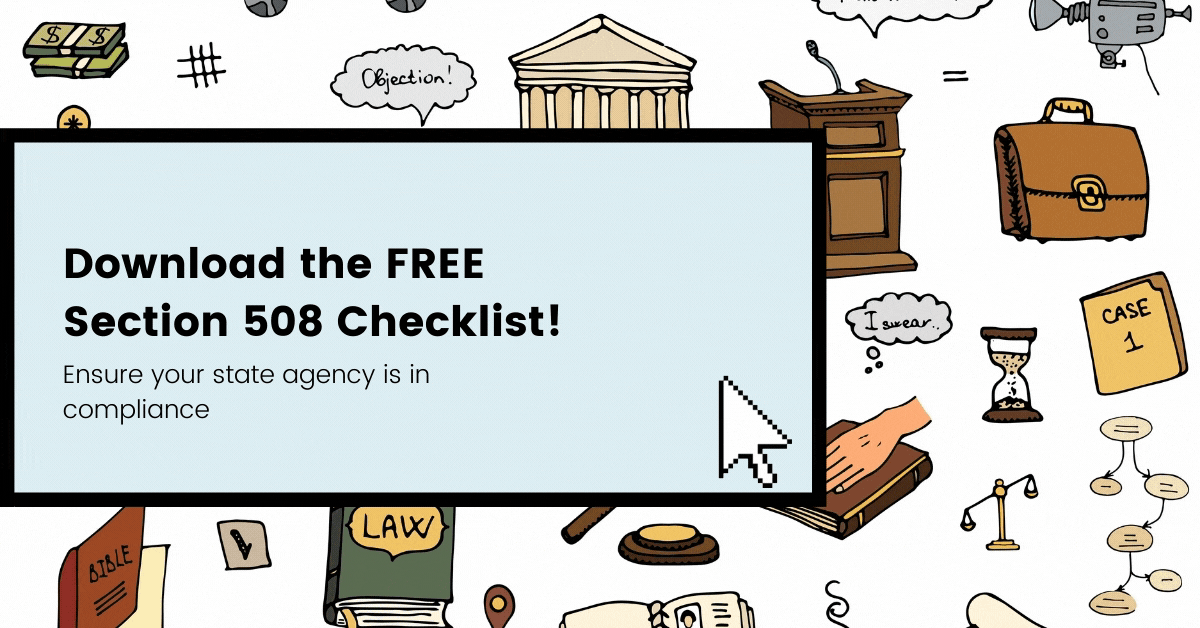Massachusetts State Web Accessibility Laws
Updated: October 20, 2023
Many states across the country have accessibility standards that have been adopted after Section 508 of the Rehabilitation Act of 1973, a federal accessibility law that requires electronic communications and information technologies be accessible.
These standards, otherwise known as “little 508s”, have been added into many state laws, including Massachusetts state laws.
The Commonwealth of Massachusetts has introduced web accessibility standards to ensure equal access to state web pages for all of its citizens, including those with disabilities.
Download The Section 508 Checklist ➡️
How WCAG Impacts Massachusetts Web Accessibility
The Massachusetts accessibility laws are important to refer to by all state agencies and their contractors who are hired to develop websites and applications on behalf of state agencies.
These standards are based on the Web Content Accessibility Guidelines (WCAG) 1.0 developed by the World Wide Web Consortium.
It addresses accessibility on all web content including websites, applications, video, audio, and more.
WCAG is not a law, however, many accessibility laws around the world reference WCAG as a standard to follow in order to make web content accessible.
It’s important to note that the Commonwealth’s standards are the minimum requirements for state agencies to follow. The most up-to-date standard of WCAG is WCAG 2.1, which encompasses more comprehensive requirements. Although Massachusetts state agencies aren’t required to meet WCAG 2.1, it’s recommended to use the latest standard so that web contents and its information can be as inclusive and user-friendly as possible.
Check Out The Section 508 Checklist!
How Massachusetts Accessibility Laws Affect Video Accessibility
In Standard 3.2 of Massachusetts’ web accessibility standards, it explicitly states that “a state agency web page must provide synchronized auditory and readable text descriptions of the important information of the visual track of a multimedia presentation.”
This means that videos or audio used on a state agency web page need to have a text alternative for viewers who may not be able to hear the sound (i.e. deaf or hard of hearing viewers).
Web content such as video and audio are particularly beneficial for users who may have difficulty reading or users who prefer a different medium to receive pertinent information.
On the other hand, many videos have characters who use body language or other visual cues. Without proper auditory information, viewers who are blind or low vision may miss important visual information.
In order to comply with Massachusetts accessibility laws, state agencies must:
- Provide captions for videos
- Provide descriptive audio (i.e. audio description) that is time-synchronized for visual information
- Allow users to control the descriptive audio
Additionally, Standard 3.3 mentions requirements for video accessibility. It states that “users who are hearing impaired need a text transcript of any information provided in audio format.”
For example, if a state agency wants to broadcast a speech on its website, there must be a text alternative for deaf and hard of hearing viewers.
In order to comply with this standard, state agencies must:
- Provide a transcript for any information provided in audio format
- Ensure the audio message is user-controlled
Learn About Other U.S. State Accessibility Laws
Click on the map below to learn more about web accessibility laws in other states.
[us_map]Click below to access your free download! 👇








